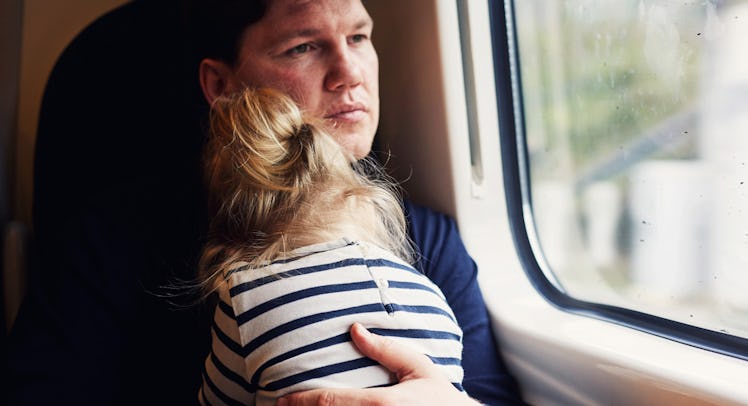What Empty Nest Syndrome? Study Find Parents Are Happiest When Kids Grow Up
Parents of young children are not happier than the rest of the population — far from it. But, a new study shows, they will be.

Parents of young children have heard some version of the same line from mothers and fathers whose kids are all grown up. “The little ones grow up too fast. They’re so cute at this age. Cherish their younger years because they’re the best years.” Social scientists have discovered that not only are these empty nesters lying, but they are having a much better time than everyone else. While it is still true that people who have families tend to be happier and healthier for it, new research reveals that the benefits of parenthood come with one big catch — they don’t kick in until children grow up and move out.
Perhaps empty nesters are not intentionally being deceptive, but are just drunk on happiness. The massive European study of over 55,000 people 50 and older found that parents experienced significantly higher levels of life satisfaction and fewer symptoms of depression than people without children, but only after their children no longer lived with them. Despite the large data size, the research did not compare empty nesters directly to parents with young children or look at parents in America. However, another study did both things using over 4 decades of data from the U.S. General Social Survey and found that empty nesters ages 50 to 70 were 5 to 6 percent more likely to report being very happy that parents with young children living at home.
To put it bluntly, “it is not reflected in the data that young, resident children cause happiness,” says economist Stefan Trautmann, co-author of the new european study.
This may be hard for new parents who are all jacked up on oxytocin to believe, but what they are likely feeling when they hold their children is not exactly happiness, but a biological bond meant to increase the likelihood of their offspring’s survival.
That’s half of the reason having kids gained a reputation for enriching parents’ lives; the other is that parenthood is associated with marriage and married couples tend to report higher rates of life satisfaction, well-being, and better mental health in the long-term overall. When these relationships are healthy, this typically gives couples an edge on single people when it comes to achieving goals like staying healthy, advancing professionally, and raising children.
Conversely, people who stay single tend to compensate with larger friendship networks. A large body of research indicates that it’s this support group that is the secret sauce for happiness. In other words, we all get by with a little help from our friends, family, and partners. Kids, on the other hand, are an entirely different animal. They might one day be supportive, but right now, well, they’re a burden.
This is partially why researchers have had a harder time sorting out the upside of parenthood, and some experts have argued that the impact on well-being may be overstated. What the data seems to indicate is that parents of young children are relatively equal in terms of how happy they are, but only when they have supportive partners. Single parents have significantly higher levels of depression and poorer physical health compared to single people without children. But the gap between single people and parents seems to widen as children grow older and moms and dads become happier generally speaking. Until recently, it was believed that this was because people who don’t have children become sadder and lonelier over time, but there is also evidence that the more independent kids are, the better off moms and dads are.
“As all parents know, parenthood can often be exhausting. The main psychological benefits may accrue once the kids get older and have left the home, and later provide social support,” Trautmann says.
Still, the reason empty nesters are happier than other parents is not just because raising young children is hard and they are no longer encumbered by those responsibilities. Empty nesters are better off because they know they have someone to take care of them when they’re too old to take care of themselves. That’s how parents ultimately cash in their investment, Trautmann explains, even before they need that support, just knowing that it’s there increases their quality of life a lot.
Trautmann, who is a father as well, is careful to note that it is not about having children versus not having children, or parents versus single people, but about this recurring concept of support. In countries like Norway and Portugal where parents have government support with childcare, and generous parental leave and sick leave policies, parents don’t have to wait for their children to move out to be happier, other studies show. Thus, the takeaway is not for parents to white knuckle their way until the day their kid gets a job, but to welcome whatever help they can get from their friends, communities, families, and partners along the way. Trautmann also points out that studies show having too high expectations can actually decrease life satisfaction, so if parents of young children expect less now, they might actually turn out to be happier. If not, the good news is that the best years are still yet to come.
“My kids are entering their teen years now, and I learned that each parental episode has new and different rewarding as well as exhausting aspects to it,” Trautmann says. “Let’s see how it is in 20 years.”